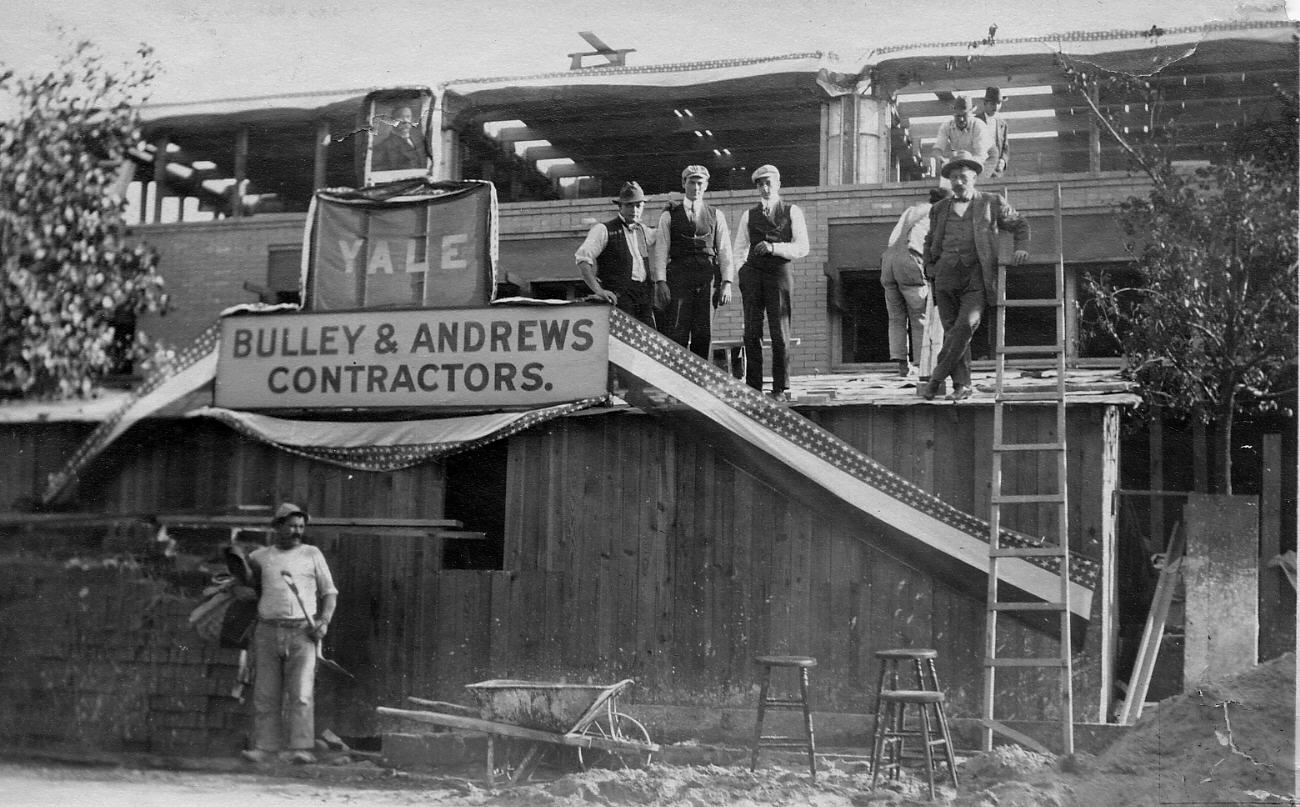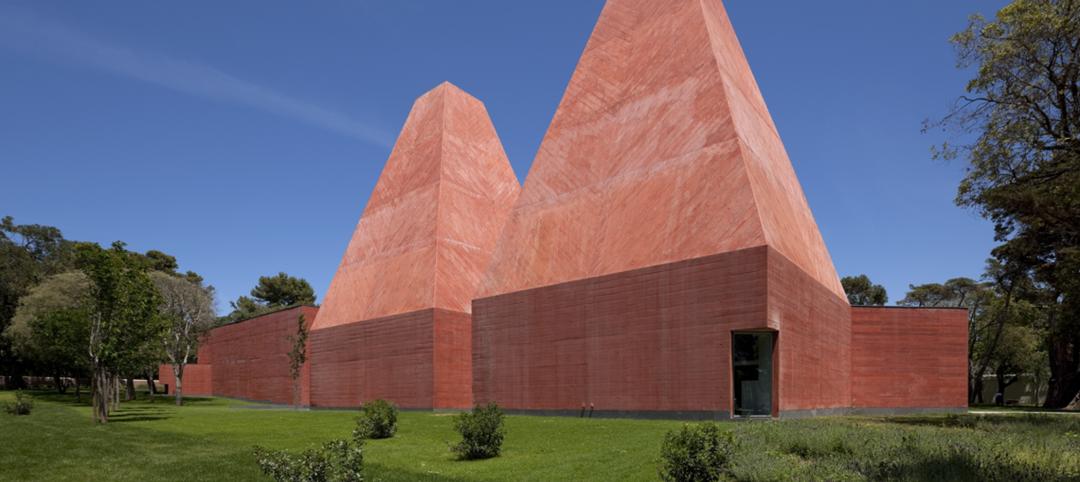In 1891, Frederick Bulley, a 21-year-old English stone mason, partnered with Alfred Andrews, an architect. Four generations and 120 years later, the modest, two man operation has become one of the most successful and well-respected general contracting firms in Chicago.
This year, Bulley & Andrews is proud to celebrate 120 years in business. The family-owned and operated general contractor attributes this significant milestone to the strong foundation built decades ago on honesty, integrity, and service in construction. The firm will celebrate the momentous occasion by hosting an open-house gathering for clients, partners and friends of the firm at the Chicago Club on Thursday, October 13, 2011.
Chairman and CEO, Allan E. Bulley, Jr., and President, Allan E. Bulley, III are the third and fourth generations, respectively, to lead Bulley & Andrews. Yet, family pride and commitment to the firm extends far beyond ownership.
Today, Bulley & Andrews’ annual revenues exceed $210 million and the company employs approximately 70 project management and administrative staff as well as over 200 field personnel. As a self-performing contractor, B&A employs a number of tradesmen whose family histories with the organization span generations and include fathers, grandfathers, brothers and sisters, many of whom have been with the organization for over 25 years.
Significant events in the company’s history include the establishment of Bulley & Andrews Masonry Restoration, LLC, in 2005. Known as BAMR, the group oversees and performs all services necessary to maintain, protect and preserve a building’s exterior. Five years later, in 2010, Bulley & Andrews acquired the assets of Takao Nagai Associates to develop the subsidiary known as Takao Nagai Concrete Restoration. Their concrete repair and waterproofing expertise complements Bulley & Andrews’ extensive restoration experience.
Over the past 120 years, the company has built and restored many of Chicago’s most significant landmarks. Late in 1941, Bulley & Andrews was commissioned by the Atomic Energy Commission to build the laboratory space for the Manhattan Project. Located beneath Stagg Field at The University of Chicago, the project was built in complete secrecy. Decades later, Bulley & Andrews has helped to construct McDonald’s corporate campus in Oak Brook, Ill., restore Frank Lloyd Wright’s famed Robie House and maintain and expand S&C Electric’s campus on the northside. The firm is currently building the world’s largest Ronald McDonald House in downtown Chicago. BD+C
Related Stories
| Apr 5, 2011
Top 10 Buildings: Women in Architecture
Making selections of top buildings this week led to a surprising discovery about the representation of women in architecture, writes Tom Mallory, COO and co-founder, OpenBuildings.com. He discovered that finding female-created architecture, when excluding husband/wife teams, is extremely difficult and often the only work he came across was akin to interior design.
| Apr 5, 2011
What do Chengdu, Lagos, and Chicago have in common?
They’re all “world middleweight cities” that are likely to become regional megacities (10 million people) by 2025—along with Dongguan, Guangzhou, Hangzhou, Shenzhen, Tianjin, and Wuhan (China); Kinshasa (Democratic Republic of the Congo); Jakarta (Indonesia); Lahore (Pakistan); and Chennai (India), according to a new report from McKinsey Global Institute: “Urban World: Mapping the economic power of cities”.
| Mar 30, 2011
China's low-carbon future city
In 2005, the Chinese government announced its target to reduce energy consumption per GDP unit by 20% by the year 2010. After a multi-billion investment, that target has been reached. The Chinese Climate Protection Program’s goal to increase energy efficiency, develop renewable energies, and promote energy savings while reducing pollutant emissions and strengthening environmental protection is reflected in the “Future City” by SBA Design.
| Mar 30, 2011
Is the AEC industry at risk of losing its next generation leaders without better mentoring?
After two or three horrifying years for the AEC industry, we are finally seeing the makings of a turnaround. However, data developed by Kermit Baker as part of the AIA Work-on-the-Boards survey program indicates that between 17% and 22% of design firms are eliminating positions for interns and staff with less than six years of experience. This data suggests the industry is at risk of losing a large segment of its next generation of leaders if something isn't done to improve mentoring across the profession.
| Mar 29, 2011
City's design, transit system can ease gas costs
Some cities in the U.S. are better positioned to deal with rising gas prices than others because of their design and transit systems, according to CEOs for Cities, a Chicago-based nonprofit that works to build stronger cities. The key factor: whether residents have to drive everywhere, or have other options.
| Mar 29, 2011
Chicago’s Willis Tower to become a vertical solar farm
Chicago’s iconic Willis Tower (formerly the Sears Tower) is set to become a massive solar electric plant with the installation of a pilot solar electric glass project.
| Mar 29, 2011
Read up on Amazon.com's new green HQ
Phase IV of Amazon’s new headquarters in Seattle is nearly complete. The company has built 10 of the 11 buildings planned for its new campus in the South Lake Union neighborhood, and is on-track for a 2013 grand opening.
| Mar 29, 2011
Portuguese architect Eduardo Souto de Moura wins Pritzker Architecture Prize
Portugese architect Eduardo Souto de Moura, whose precisely-honed buildings reflect the influence of the late Chicago modernist Mies van der Rohe, is the 2011 winner of the Pritzker Architecture Prize, the field's highest honor.
| Mar 25, 2011
Qatar World Cup may feature carbon-fiber ‘clouds’
Engineers at Qatar University’s Department of Mechanical and Industrial Engineering are busy developing what they believe could act as artificial “clouds,” man-made saucer-type structures suspended over a given soccer stadium, working to shield tens of thousands of spectators from suffocating summer temperatures that regularly top 115 degrees Fahrenheit.












